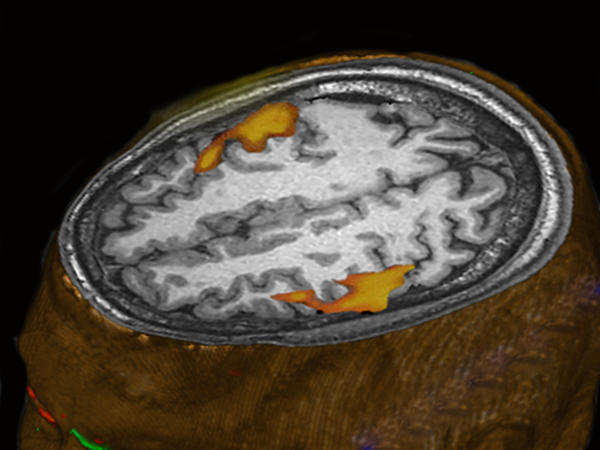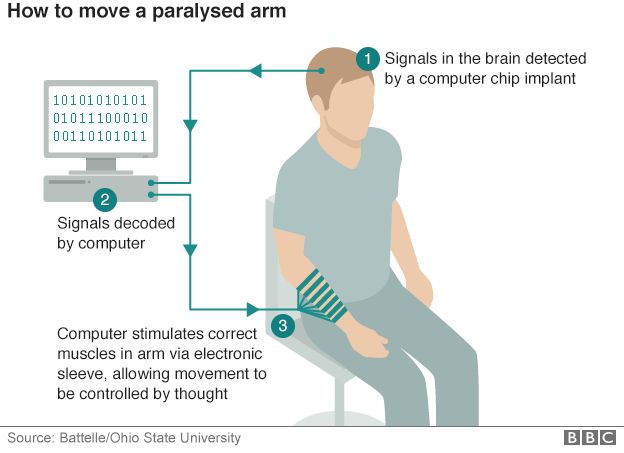Do Monkeys Enjoy Tchaikovsky?
This week’s blog post was written by guest blogger, Liz Ashforth. This time, Liz discovered research in the neuroscience field that sheds light on how different primate brains, including humans, respond to music.
Do monkeys enjoy Tchaikovsky? To address this question, a recent study published in Nature Neuroscience compared the functional magnetic resonance imaging (fMRI) response in brains of humans to that in macaque monkeys listening to music.

Do monkeys appreciate music? Researchers compared fMRI brain scans of macaque monkeys and humans to find the answer.
Brain Scans Show How Monkeys Process Music
New Hampshire Public Radio (NHPR) revealed this intriguing finding in this interview with Bevil Conway, an investigator at the National Institutes of Health, and Sam Norman-Haignere, now a postdoctoral researcher at Columbia University. What sounds like music to humans may just be noise to a macaque monkey.
Humans and monkeys are nearly identical when it comes to processing visual information. As such, it was surprising to see these differences in audio perception. The finding suggests that while humans have developed brain areas that are sensitive to pitch and tone, which help process sounds associated with music, monkeys do not.
Norman-Haignere says: “Both speech and music are highly complex, structured sounds. And it’s totally plausible that the brain has developed regions that are highly tuned to those structures. It’s plausible that there’s something in our genetic code that causes those regions to develop the way they are and to be located where they are. Or it could be that these brain regions develop as children listen to music and speech.”
This differentiator between humans and monkeys, and humans’ ability to detect subtle changes in pitch and tone are critical for conveying and perceiving emotion. It allows humans to interpret emotion simply by hearing changes in a person’s tone.
Non-invasive fMRI Analysis
A prior study conducted at Massachusetts Institute of Technology, which Norman-Haignere contributed to, had devised a new approach to brain imaging. By mathematically analyzing scans of the auditory cortex and grouping clusters of brain cells with similar activation patterns, the scientists identified neural pathways that react almost exclusively to the sound of music — any music. When a musical passage is played, a distinct set of neurons tucked inside a furrow of a listener’s auditory cortex will fire in response. Other sounds, by contrast — a dog barking, a car skidding, a toilet flushing — left the musical circuits unmoved. These results were reported in the journal Neuron.

An MRI scan of a person listening to music shows brain areas that respond. Image Credit: Kul Bhatia/Science Source
For the new research, Conway, Norman-Haignere and several colleagues used fMRI to monitor the brains of six people and five macaque monkeys as they listened to a range of sounds through headphones.
fMRI is a non-invasive technique for imaging the activation of brain areas by different types of physical sensations, such as sight, sound, touch, taste, and smell. fMRI scans use the same basic principles as MRI scans but scan for metabolic activity, while MRI scans create images of anatomical structures.
Some of the sounds were more like music, where changes in pitch are obvious. In humans, the scans reveal a very clear response, while in monkeys the scans showed no such response.
MATLAB was used in the generalized linear model regression analysis and corresponding permutation tests. To learn more, you can find the general-purpose code for fMRI analysis on GitHub.
This research shows an important difference between humans’ and monkeys’ ability to enjoy music. Humans showed brain regions with a strong preference for harmonic sounds compared to noise. The monkeys did not.
It seems that monkeys won’t be enjoying Tchaikovsky anytime soon!










댓글
댓글을 남기려면 링크 를 클릭하여 MathWorks 계정에 로그인하거나 계정을 새로 만드십시오.